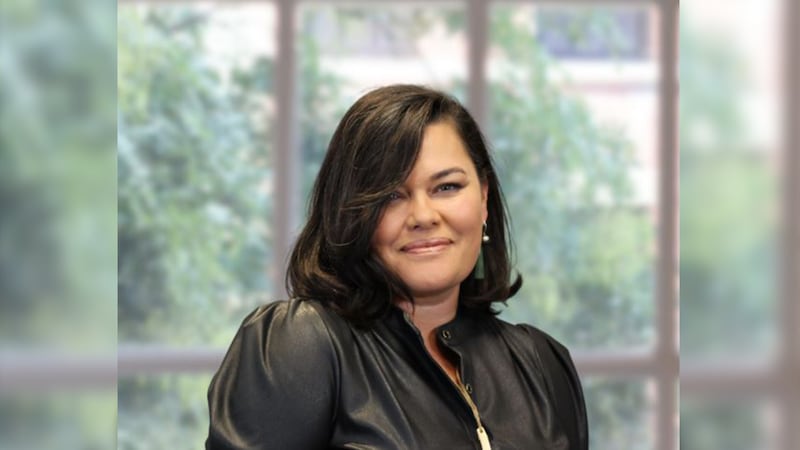The United States election is about to end in less than a month’s time, with either Vice-President Kamala Harris or former president Donald Trump winning the White House.
Although it’s happening thousands of kilometres away from Aotearoa’s shores, why should Māori care?
Sarah (Hera) Smith (Ngāti Kuri, Te Rarawa, Ngāti Hine, Ngāti Kahu, Ngāti Rehia, Ngā Puhi, and Te Aupōuri) is a registered voter in both the US and Aotearoa. She believes Māori back home should be concerned about this year’s “consequential election”.
“If Māori care about te ao, if we are citizens of the world, we need to understand the realities of that world, which is that we are interconnected.
“We do need to care about elections in this mega election year. The US election, has an impact on the world broadly because of the power that the United States has held for many years.
“As a country in the South Pacific, Aotearoa is inextricably connected to [the US] through trade, through the history of conflict, and through the travel of our ancestors,” she said.
Smith studied in the US., earning a double major in political science and women’s studies at Hunter College while simultaneously working with the Ministry of Foreign Affairs and Trade (MFAT). She now resides in Harlem, New York.

Aotearoa has just seen an election pass, with National winning with the help of its coalition partners, Act and New Zealand First. Smith believes the two elections are similar.
“We are seeing this rapid destruction of those years and decades of sweat and blood and tears that our ancestors, our forebears, have worked very hard for and just to see the rapid change in a span of 11 to 12 months by the current government in Aotearoa is just a glimpse into what the wrong type of leadership can impact decades and decades of progress for marginalised communities
“There’s really nothing different between the political power and imbalance of uplifting all communities within a nation as there is when we look at Aotearoa now and [when] we look at the potential for a Trump presidency to happen in November."
Smith wants Harris to be the 47th US President and believes this outcome would be the best for not only America but also Aotearoa.
“The Aotearoa I want is a free Aotearoa for our mokopunas’ mokpuna and, when I say free, I mean the ability to access our fullest potential in the world that is based on equity, compassion, [and] working together to look after people.
“For me, that candidate is no one but Kamala Harris. The alternative is a stark alternative that I don’t see benefiting the majority of people. I don’t even see it benefiting the minority of people who might believe in the policies of the Republican Party,” Smith said.

Te Ao Māori News asked the Māori American if she would come home, as she did in the early stages of Covid-19 before the borders closed, if Trump were re-elected.
Smith said, no matter the outcome, she and her whānau were planning to come back to New Zealand in the next few years anyway.
“If Trump is elected, I know that there are families who are already planning the exit plan from the United States, and I do know that there are some who are considering Aotearoa.
“Will we be one of those whānau? We would be one anyway. Will that accelerate our return home? Maybe so, because at the end of the day, I’m a mother and I have to look out for my children’s safety,"
What’s Aotearoa’s relationship with the US?
According to the US Department of State website, New Zealand has a strong relationship with the US dating back to 1838 when the first US Cconsul was commissioned. There are bilateral ties between the two nations, supported by several agreements, including the 2010 Wellington Declaration, which reaffirmed close ties; the 2012 Washington Declaration, which strengthened the defence relationship by providing a framework and strategic guidance for security cooperation and defence dialogues; and the 2021 Artemis Accords, which established principles to guide space exploration cooperation among nations participating in NASA’s 21st-century lunar exploration plans.
The two countries work together on a range of scientific areas, especially research in Antarctica.
According to US figures, 250,000 Kiwis visited the States in 2022, with a similar number of Americans visiting New Zealand. This trend is moving back toward the 300,000 visitors to New Zealand that were seen before the Covid-19 pandemic.
Aotearoa and the United States don’t just trade people but have also traded goods and services since 1992. The top US exports to Aotearoa have included aircraft, agricultural machinery, vehicles, and ICT and healthcare products. In return, New Zealand exports meat (mostly frozen beef and lamb), beverages (mostly wine), dairy products, machinery, and albuminoidal substances (mostly casein) to America.
“Two-way goods trade between the United States and New Zealand totalled $13.4 billion ($22 billion NZD) in 2022, with US goods exports to New Zealand totalling $4.2 billion ($6.9 billion NZD) and imports totalling $5.4 billion ($8.9 billion NZD). US trade in services (exports and imports) with New Zealand totalled an estimated $3.8 billion ($6.2 billion NZD) in 2022.
“Services exports were $2.5 billion ($4.1 billion NZD); services imports were $1.3 billion ($2.1 billion NZD) in 2022. New Zealand was the United States’ 47th largest goods export market in 2020. The US goods trade deficit with New Zealand was $1.2 billion ($1.97 billion NZD) in 2022. The US services trade surplus was an estimated $1.2 billion ($1.97 billion NZD) with New Zealand in 2022,” the US Department of State said.
The United States doesn’t provide Aotearoa with any development assistance unlike other Pacific nations.
The opinion shared by Sarah (Hera) Smith does not reflect the views of her employer or any affiliated entities.


